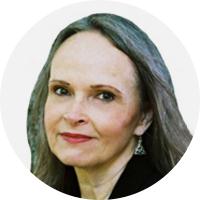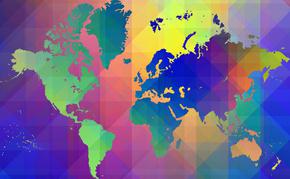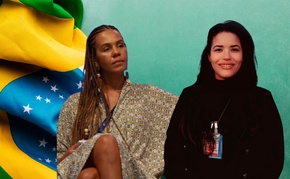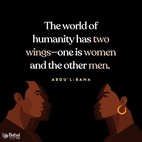The views expressed in our content reflect individual perspectives and do not represent the authoritative views of the Baha'i Faith.
My friend Misha, an Ashkenazi Jew who arrived from the Soviet Union in his early teens, pushed back, sometimes very hard, against the Baha’i ideal of racial unity, especially where it regarded intermarriage.
One of the most prominent and profound Baha’i principles, this core teaching of unity calls on all people to love the common humanity in each person despite any superficial differences. As Abdu’l-Baha clearly pointed out:
This earth is one household and the native land of all humanity; therefore, the human race should ignore distinctions and boundaries which are artificial and conducive to disagreement and hostility.
Misha’s own son had married a Black woman who was also Muslim, which disturbed him greatly, for it seemed to him a loss of racial identity. This caused him ask me a number of questions about intermarriage and the cultural mixing of diverse populations.
RELATED: Moving Beyond Racial Prejudice to Intermarriage
Q: If we intermarried would it not be that the farther we will move up the genealogical tree, our only chance to diversify our features would be through mutations?
A: First, differences between ethic groups – skin color, for example – are already driven by mutation in combination with the environment. If the world were an infinite, flat place, and different populations moved continually away from each other, never intermingling with other populations, then there would be less and less diversity within that population, but mutations would continue to alter the population to suit their environment.
In reality, modern genetic science has proven that we have been, and will continue to be, ethnically mixed. There are Asians who have Northern European mutations because of intermarrying back in the day, and Northern Europeans with more African characteristics.
Our evolution, though, has been toward unity. A question that has puzzled scientists until recently was why wherever we – homo sapiens – appeared, other hominid groups went extinct while we prospered? They now say it’s because we human beings developed the tools of cooperation and collaboration – in a word, unity. We first had spoken, then written language, religion, commerce, agriculture, etc. We recognized ourselves not just as individuals, but as part of a family unit, a clan, a tribe, a nation.
Guess what—a global identity is next.
Q: Does that mean they all will become the robot-like people, and preserve no uniqueness?
A: Why would it? Unity does not imply or require uniformity. Even people of the same nation, ethnicity or color may be radically different in the way they think and behave – as radically different as you and I.
The Baha’i byword is “Unity in diversity.” Our different talents and abilities give us strength as a society, and make the world beautiful.
This is evolution, genetic and spiritual, guiding and informing cultural and social evolution. The crux (and fact) of the matter is that we are all members of one human family. In order for us to continue to evolve socially on this planet, we must come to recognize that. The alternative to evolution is extinction. We have, for thousands of years, used our tools to bring about greater unities. There’s no reason we should stop now.
BUT Baha’u’llah very realistically understood that not everyone was able to see past their own selfish interests to care what happened to other people. He said that for a while, what He calls the Lesser Peace – a political peace – will be driven by the fact that people don’t want to go extinct. This peace will be guided by practical considerations: Leaders will seek unity because they don’t want their countries (or their own personal power) swept away.
RELATED: No Unity, No World Peace
After a while, Baha’u’llah wrote, as people come to appreciate and make use of the benefits of this Lesser Peace, a truer and more lasting peace will grow, based on real transformation of the human community. Christ described this in the New Testament book of Matthew, when his disciples asked him how the Kingdom of God will come. He told them it’s like a great tree growing from a tiny seed, and a little yeast kneaded through a lot of bread dough. In other words, it’s a slow, organic process. In his mystical book The Hidden Words, Baha’u’llah wrote:
Know ye not why We created you all from the same dust? That no one should exalt himself over the other. Ponder at all times in your hearts how ye were created. Since We have created you all from one same substance it is incumbent on you to be even as one soul, to walk with the same feet, eat with the same mouth and dwell in the same land, that from your inmost being, by your deeds and actions, the signs of oneness and the essence of detachment may be made manifest.
This isn’t just a nice thought – Baha’u’llah called for “deeds and actions” in pursuit of this human unity. In another passage he called on humanity to transform the teachings of the divine messengers and prophets into reality and action. I’ve simply chosen to try to do this, along with millions of other Baha’is – and people who do not consider themselves Baha’is or even religious.
One thing is absolutely sure, though. If no one acts on what religion and science are both telling us about ourselves – that we are one family – then we will find neither unity or peace. As Baha’u’llah wrote: “The well-being of mankind, its peace and security, are unattainable unless and until its unity is firmly established.”

















Comments
Sign in or create an account
Continue with Googleor